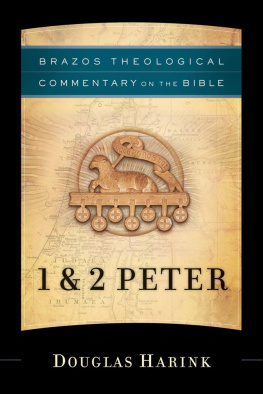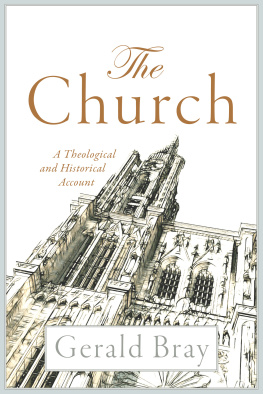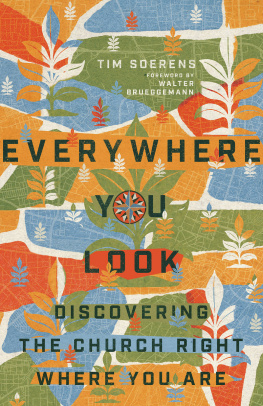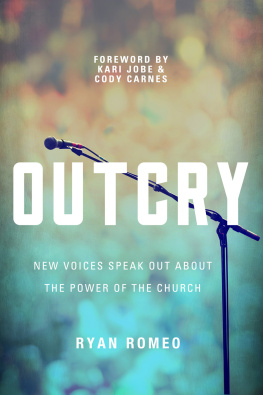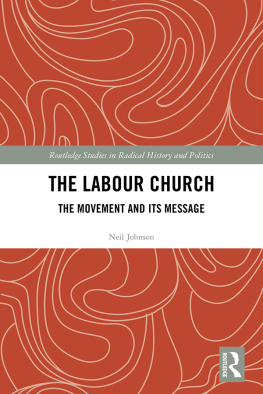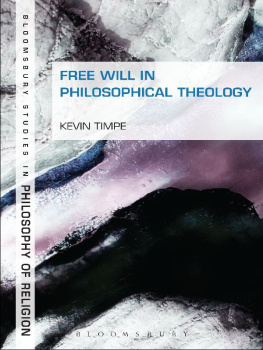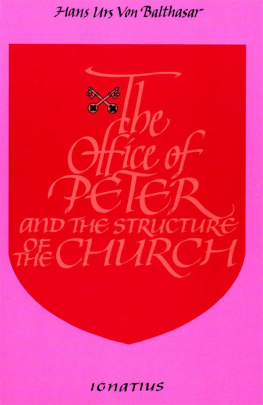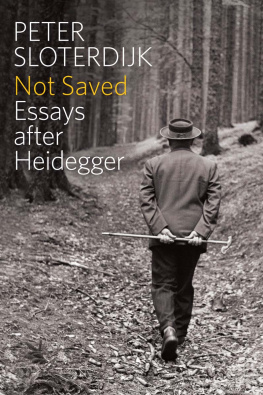Peter Rollins - How (Not) to Speak of God
Here you can read online Peter Rollins - How (Not) to Speak of God full text of the book (entire story) in english for free. Download pdf and epub, get meaning, cover and reviews about this ebook. year: 2006, publisher: Paraclete Press, genre: Religion. Description of the work, (preface) as well as reviews are available. Best literature library LitArk.com created for fans of good reading and offers a wide selection of genres:
Romance novel
Science fiction
Adventure
Detective
Science
History
Home and family
Prose
Art
Politics
Computer
Non-fiction
Religion
Business
Children
Humor
Choose a favorite category and find really read worthwhile books. Enjoy immersion in the world of imagination, feel the emotions of the characters or learn something new for yourself, make an fascinating discovery.

- Book:How (Not) to Speak of God
- Author:
- Publisher:Paraclete Press
- Genre:
- Year:2006
- Rating:4 / 5
- Favourites:Add to favourites
- Your mark:
- 80
- 1
- 2
- 3
- 4
- 5
How (Not) to Speak of God: summary, description and annotation
We offer to read an annotation, description, summary or preface (depends on what the author of the book "How (Not) to Speak of God" wrote himself). If you haven't found the necessary information about the book — write in the comments, we will try to find it.
How (Not) to Speak of God — read online for free the complete book (whole text) full work
Below is the text of the book, divided by pages. System saving the place of the last page read, allows you to conveniently read the book "How (Not) to Speak of God" online for free, without having to search again every time where you left off. Put a bookmark, and you can go to the page where you finished reading at any time.
Font size:
Interval:
Bookmark:
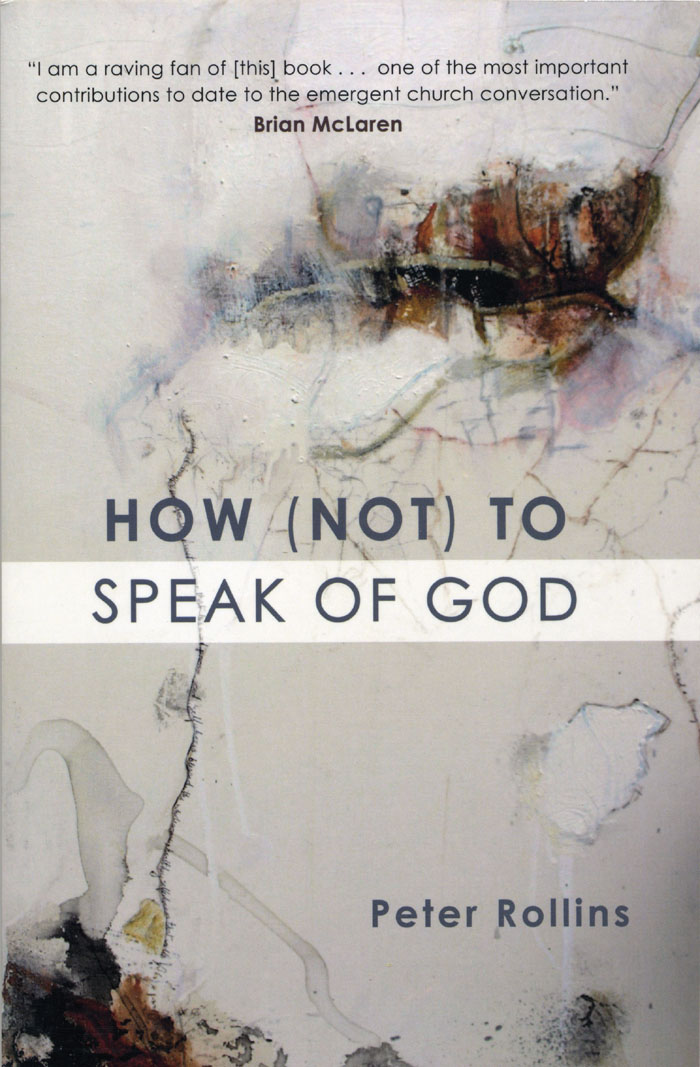
Peter Rollins

How (Not) to Speak of God
2008 Second Printing
2006 First Printing
Copyright 2006 Peter Rollins
ISBN: 978-1-55725-505-1
This edition published by Paraclete Press, 2006.
First published in Great Britain in 2006 by Society for Promoting Christian Knowledge
36 Causton Street
London SW1P 4ST
Scripture quotations taken from the HOLY BIBLE, NEW INTERNATIONAL VERSION, Copyright 1973, 1978, 1984 by International Bible Society.
Used by permission of Hodder & Stoughton Ltd, a member of the Hodder Headline Plc Group.
All rights reserved. No part of this book may be reproduced or transmitted in any form or by any means, electronic or mechanical, including photocopying, recording, or by any information storage and retrieval system, without permission in writing from the publisher.
3579108642
Typeset by Graphicraft Ltd, Hong Kong
Published by Paraclete Press Brewster, Massachusetts www.paracletepress.com
Printed in the United States of America
To the Menagerie
For you opened your doors to us
Part 1
HERETICAL ORTHODOXY:
FROM RIGHT BELIEF TO BELIEVING IN THE RIGHT WAY
Part 2
TOWARDS ORTHOPRAXIS:
BRINGING THEORY TO CHURCH

Books are authored by countless people and credited to only one. They each represent little kingdoms of thought built from the toil of others that gratify the tiny tyrant who chained the disparate ideas together. If I were to begin to thank all those who have helped to steer my thinking, it would be a long list. With that in mind, I will stick to thanking those who were directly involved with encouraging me in this particular work. My thanks go to Ian Mitchell, the one who said that I ought to publish a book on this subject; Alison Barr, who opened up the way for it to be published; and Andrew King and Cary Gibson, who helped render the material publishable. My deep thanks also go to Brian McLaren, Phyllis Tickle, Jonny Baker, Helena Macormac, the Ikon cyndicate, Francie and my parents.

I am a raving fan of the book you are holding. I loved reading it. I have already begun widely recommending it. In the last two days I have recommended it to three rabbis, and in recent weeks, to many Christian leaders. Reading it did good for my mind and for my soul. It helped me understand my own spiritual journey more clearly, and it gave me a sense of context for the work Im involved in. It drew unexpected connections between the medieval Christian mystics and contemporary philosophy, for example, and it stirred my imagination. In fact, I would say this is one of the two or three most rewarding books of theology I have read in ten years. Do I sound like Im raving yet?
My enthusiasm is all the more significant because I read a lot of theology. To me, nothing (or almost nothing) is more elevating and challenging, yet more humbling and overwhelming, than setting the mind to think about God, and to think about thinking and speaking about God. I am nearly always working through a work of theology, either ancient or contemporary. So when I say this book is among the best Ive read, Im saying something significant.
And its more significant still because the author of this book is a young and I think its safe to say up-until-now unknown - emerging theologian. But as this book makes clear, he deserves to be known and appreciated, especially when one thinks that this may be the first of many contributions he makes in the years to come.
Growing up in Belfast, Northern Ireland, Peter Rollins has seen Christianity expressed in one of its more dysfunctional Western forms where the division between Protestants and Catholics frequently has gone bloody, hateful, and bitter. Speaking of God in Northern Ireland has too often fomented distrust and prejudice, not peace and reconciliation: speaking of God has too often been part of the problem, not of the solution. Like a kid growing up in a conflicted family characterized by loud and violent fights with the windows wide open, he has had to grapple with issues that more genteel dysfunctional families can more successfully hide. His setting prepares him uniquely to speak about how (not) to speak for God and one hopes that people in other settings will learn much from him, including my own conflicted country.
Coming of age in what is often called a postmodern context, Peter Rollins was not formed at least not successfully within the constraints of modernity. He represents what is to me one of the first and most hopeful expressions to date of Christian theology being done in a postmodern context not merely speaking of postmodernity in the context of theology, but speaking of God meaningfully in the context of postmodernity. Some have said that theology in the context of postmodernity is impossible or unfruitful, but here they will see better (im)possibilities. Again and again, Peter challenges us to embrace opposite ends of common modern polarities, and, in so doing, shows the creative and constructive power of what is commonly called deconstruction.
Equally unusual and significant, Peter is doing the serious work of theology while rooted more in a faith community than in an academic institution. As the second part of the book makes clear, Peter believes that people who are engaged in real communities of spiritual practice are uniquely prepared to speak of God. The rituals and gatherings of the Ikon community may be uncomfortable to some, even as they prove inspiring and moving to others.
I know I winced on one occasion as I imagined participating in some elements of the liturgies that were described. If we find ourselves offended or disturbed by elements of the Ikon services, we might ask ourselves whether the disruption of a disturbing liturgy is necessary at times to arouse people like us from the religious slumbers that so frequently overtake us like the bizarre characters in a Flannery OConnor novel or short story, for example to jolt us into the realization that we routinely tolerate the intolerable in the ways we speak of God. Could there be some resonance here with the disturbing actions taken by some of the biblical prophets like Isaiah preaching naked for three years, Ezekiel cooking his food over excrement, or Hosea marrying a woman of ill repute actions whose very oddness disrupts business as usual in the ways we speak of God?
Peter includes them not so that others will imitate them as a mass-reproducible model, but so that the reader can imagine what this way of (not) speaking of God looks like as practised in one innovative faith community in one storied location at one important historical moment. One hopes that many others will be inspired to appropriate creativity in their situations.
Not many who speak of God do so in ways that are at one moment deeply inspiring and poignant in resonance with the great Christian mystics and, at the next, disturbing in the tradition of the Hebrew prophets. Not many people who speak of God do so with a mixture of Pentecostal/ Evangelical experience, a wide reading in Christian devotional literature, and a thoughtful engagement with postmodern philosophical scholarship. Peter does.
Font size:
Interval:
Bookmark:
Similar books «How (Not) to Speak of God»
Look at similar books to How (Not) to Speak of God. We have selected literature similar in name and meaning in the hope of providing readers with more options to find new, interesting, not yet read works.
Discussion, reviews of the book How (Not) to Speak of God and just readers' own opinions. Leave your comments, write what you think about the work, its meaning or the main characters. Specify what exactly you liked and what you didn't like, and why you think so.

